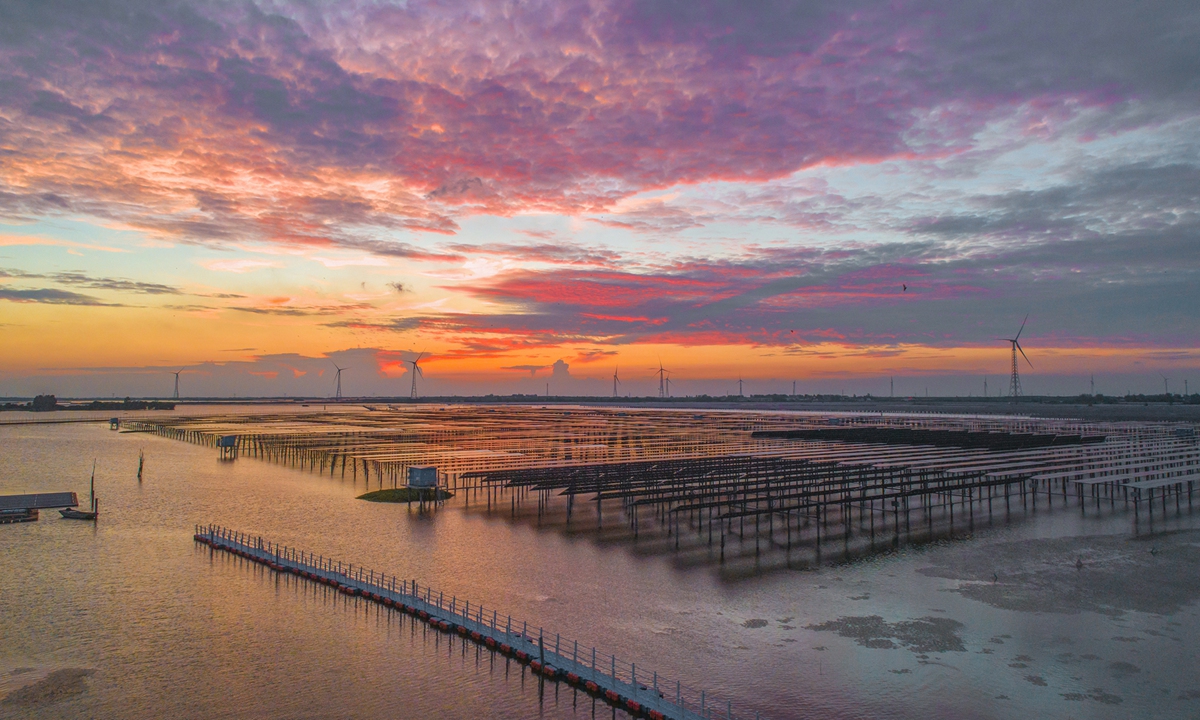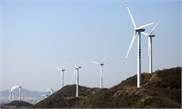Former finance minister warns against foreign countries imposing carbon tariffs against China in trade attacks

A renewable energy base in Sihong County, East China's Jiangsu Province is seen on Sunday as wind turbines spin. The base can generate 650 million kilowatt-hours of power annually, with tax revenue of 50 million yuan ($7.7 million). The annual income of fishery breeding amounts to 45 million yuan, and tourism income to 20 million yuan. A total of 640,000 tons of carbon emissions can be avoided every year. Photo: VCG
China will take further measures to prevent other countries from imposing trade attacks against China by means of carbon tariffs, China's former finance minister Lou Jiwei said during the ESG Global Leaders Summit. The comments have been taken as a warning against overseas countries that are using carbon reduction as a new tool in furthering protectionism.
During the summit, he evaluated China's recent policy of removing VAT rebates on steel exports and increasing exporting tariffs on certain steel products as being "beneficial" to reducing carbon emissions and preventing carbon transfer.
"Actually [a lot of) carbon has been transferred to China, judging from the trillion-dollar-plus primary steel exports," Lou said, adding that the government's measures to increase steel exports taxes could also help offset the bulk commodities' price surge.
Lou went on to stress that China could continue to expand measures following "experiments," which will be effective in preventing "certain countries" to impose trade attacks against China through carbon tariffs and carbon quota pricing.
In July, the EU published a plan for a mechanism to levy the world's first carbon border tax, which they said is intended to help reduce greenhouse gas emissions.
US democratic lawmakers have also put forward proposals to raise $16 billion annually by imposing a tax on imports from China and other countries if they don't meet pollution-reducing targets, according to media reports.
However, Lou also stressed that China will strive to bring its carbon trade price levels in line with international standards over time.
"Although China can't reach the EU's carbon trade price levels immediately, it will gradually approach the international standards," he said.



